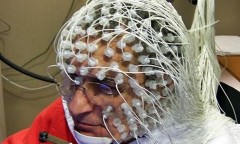By Arthur Dominic J. Villasanta , | April 30, 2017

Tumor Biology
A total of 107 scientific papers written by authors from mainland China and published in the peer-reviewed journal, Tumor Biology, have been withdrawn because of falsified peer reviewer reports.
The embarrassing retractions were announced by Berlin-based Springer, publisher of Tumor Biology. The papers were published in the magazine from 2012 to 2016.
Like Us on Facebook
Springer was the publisher of Tumor Biology in 2016. The journal is now published by SAGE, an independent academic publisher.
"We are retracting these published papers because the peer review process required for publication in our journals had been deliberately compromised by fabricated peer reviewer reports," said a statement from Springer.
Springer said all the authors involved in the retraction are from Chinese institutions. These institutions were mostly medical institutes such as the Department of Neurosurgery, Tongji Hospital under Tongji University in Shanghai.
Springer said it found that the papers were submitted to reviewers who had fake email addresses. The papers were submitted with the names of real researchers, but with fabricated email addresses.
In August 2016, Springer withdrew 64 articles from 10 of its journals after also finding evidence of faked peer reviews, nearly all of them by Chinese academics.
A total of 117 academic papers involving Chinese authors have been withdrawn from publishers including Nature, Springer and Elsevier since 2015.
Springer said it's very likely more papers by Chinese authors will be withdrawn in the future.
"As a result of a very big screening, we may have identified a small number of articles from various journals. Since these are ongoing investigations we cannot give further details at this point," said Springer.
Peer reviewers are required to anonymously evaluate papers before researchers get funding, but the identities of these reviewers are often compromised. These reviewers are contacted and are sometimes bribed to submit better evaluation reports.
"Academic fraud reflects society's fraud habit," said Hu Xingdou, a professor at the Beijing Institute of Technology.
In China, many academic institutions use the quantity of articles published by an academic as the standard of assessment, which causes some research fellows to only chase the quantity instead of the quality of their study results."
Chinese academia should focus more on quality and make peer reviews public to reduce academic fraud, recommended Hu.
-
Use of Coronavirus Pandemic Drones Raises Privacy Concerns: Drones Spread Fear, Local Officials Say

-
Coronavirus Hampers The Delivery Of Lockheed Martin F-35 Stealth Fighters For 2020

-
Instagram Speeds Up Plans to Add Account Memorialization Feature Due to COVID-19 Deaths

-
NASA: Perseverance Plans to Bring 'Mars Rock' to Earth in 2031

-
600 Dead And 3,000 In The Hospital as Iranians Believed Drinking High-Concentrations of Alcohol Can Cure The Coronavirus

-
600 Dead And 3,000 In The Hospital as Iranians Believed Drinking High-Concentrations of Alcohol Can Cure The Coronavirus

-
COVID-19: Doctors, Nurses Use Virtual Reality to Learn New Skills in Treating Coronavirus Patients










